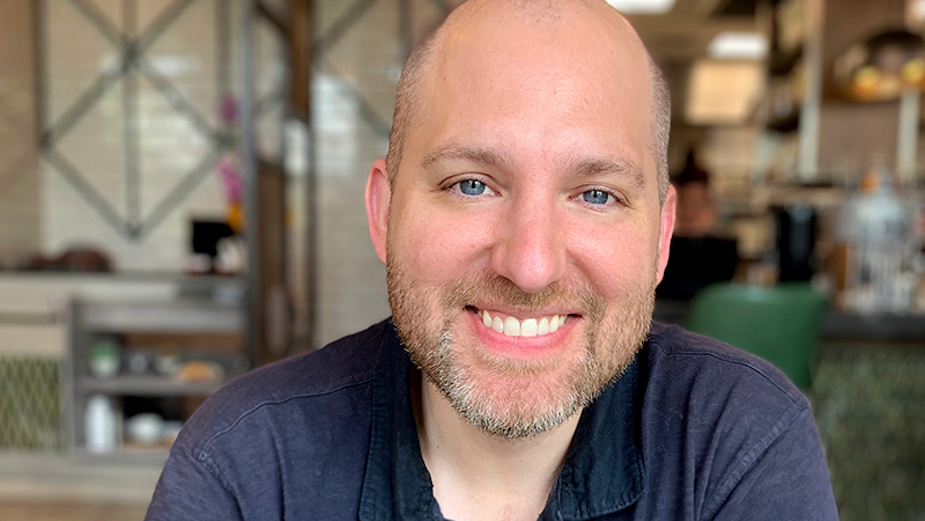
Sound Advice: Following the Path to a Career You Love

Justin Morris is the music supervisor for Sonic Union + SuperSonic. His recent projects include Away, Nascar, Ralph Lauren, Verizon. The career title of music supervisor formalised a lifelong passion for finding music and helping people providing sonic inspiration.
Justin works for Sonic Union from Indianapolis, IN. When he's not teaching his two kids about the importance of music, Manchester United, giving back to the community, enjoying good food and cooking; he’s moonlighting as an urban farmer complete with chickens.
Q> How did you start as a music supervisor?
Justin> It definitely wasn’t a direct route. After college I had visions of being someone’s songwriter or producer - music supervision wasn’t on my radar yet. However, with no clients in NYC and the music industry being completely reshaped by file-sharing, I made massive adjustments to expectations. I interviewed for anything that had audio or some semblance of creative work... HBO, CBS, CBGB’s, Studio Instrument Rental (SIR), etc. My break came when I was hired at HSR to work the front desk. It was a post production studio that focused on Film, TV and ad work. It’s here where I learned that music production didn’t have to be my only creative channel, but I could be a part of building up projects by finding the right music for people. So I asked if I could work longer hours to assist the music director; with a little time and trust from my colleagues, I moved into the role of music supervisor.
Q> And when did you start at Sonic Union?
Justin> When HSR closed its doors in 2011, I started up JUMO Music to continue music supervision. I had worked with Sonic Union’s co-founder, Steve Rosen when he was at HSR, and I feel he made the connection happen. I assisted with curating the music collection for Sonic Union’s online music search engine, SuperSonic. I also helped with estimates and music search overflow. It wasn’t until 2018 when I asked the other co-founders, “can I come work for you?”
Q> How have you evolved since first starting as music supervisor?
Justin> Initially there was so much to learn about this career which was outside of just finding the right track; i.e. synchronisation licensing, legal jargon, negotiating, different music libraries and genres, interpreting client briefs and then turning those into successful music searches. Now that those fundamentals are in place, the focus can be about staying current with music trends and artists, trusting my musical instincts more and then always improving customer service.
Q> What’s a trend you’re seeing in music?
Justin> It’s not really new, but it seems like vocals being used as lead synths aren’t going anywhere in pop music; also, it’s worth mentioning whisper-singing or vocals being used as a layer rather than a focal point.
Q> Actual thought process when you’re selecting music.
Justin> The tools for this trade have really evolved. I used to start by scouring through hundreds of CDs and then burning a playlist for agency producers and mixers; this caused a serious time crunch element that could get in the way of hearing music objectively.
When Sonic Union created SuperSonic, it completely improved the way I searched for music. They were letting me use it while I was running JUMO Music, and it was crushing my previous methods of music search (portable drives and individual library websites.) This is very much a communication job because we are dealing with creative minded people who may not have a music vocabulary. So while I’m figuring out what a client means when they say 'bright' or 'organic,' I know SuperSonic can back me up.
Q> What is one of the biggest misconceptions about what you do?
Justin> People think I am always selecting the hero track for each project. I’ve read the brief, I’ve seen the storyboards, I’ve gotten on the conference call with five creatives and a producer, and then handpicked a collection of music which will give the right emotional response. However, 98% of the time, the responsibility of picking the final track falls on their clients. Yes, I’m narrowing down those music options significantly for our clients; but ultimately, I’m here for the assist - and I have no problems with that.
Q> Some music supervisors think of libraries as competition to their role - why don’t you?
Justin> SuperSonic is like having a music supervision department in your own studio; so music libraries serve as a silent partner for us. The libraries that are invested in being a part of SuperSonic trust we are introducing their music to users in a way which is responsible, and a user may not have discovered on their own.
Q> Was there a pivotal person or moment that led you to what you do today? Does it speak to the importance of mentorship, being open to new experiences, education?
Justin> Rapid fire answers here - High school’s electronic music teacher Mrs. Jane Pollak, for letting me stay after hours parked in front of a Cakewalk loaded PC with a Roland XP-10. My parents for always believing in my abilities, and then pointing me to New York. Mentioned before here, but Steve Rosen, who told me at HSR, “The next time the boss asks you if you’re ready to be our music supervisor, you say yes… even if you feel no.” It is definitely a testament to apply for the job you really want. Last but not least, our other managing partner, Adam Barone. He’s just a great person to work with/for; he lifts you up, sees the big picture but happy to troubleshoot on a micro level with any issues, or push for new angles of advocating for yourself. The guy can elevator pitch like no other.
Q> How does what you do impact how you see - or hear - the world? Are you better at some things because of it? Lessons to take into other aspects of one’s life, etc.
Justin> I like to write and record music myself and there’s a bit of ego that is tapped when composing music. However, music supervision can be more about stepping away from that; you’re lifting up someone else’s vision. Also, music doesn’t always need to be the star. It can be one piece of the greater work. Chris Rock had this bit when discussing his relationship, where you can't be competitive or jealous with your partner, and it translates well to many things in this life and in our industry: “Someone has to be lead singer and someone has to stand in the back and play the tambourine. If you're on tambourine, play it right! Play it with a f@#%ing smile. Nobody wants to see a mad tambourine player. Play it like Tina Turner!"
Q> What’s one thing you’d like to see changed for the sake of music artists, your sector, or the industry at large?
Justin> Devaluing music for internet use, where it’s lined up to be our main source of entertainment, seems like we are running this race with our shoes tied together. Allowing producers to decide what music is worth based off of a feeling or immediate budget need, sets a precedent that will put composers and musicians at a disadvantage for years. I would like to see an increase to budgets for sync licensing specifically for internet use (including social media). As a composer, sometimes the PROs didn’t work out in my favour and the sync fee was what made a project worthwhile. I feel those need to be better for composers.













